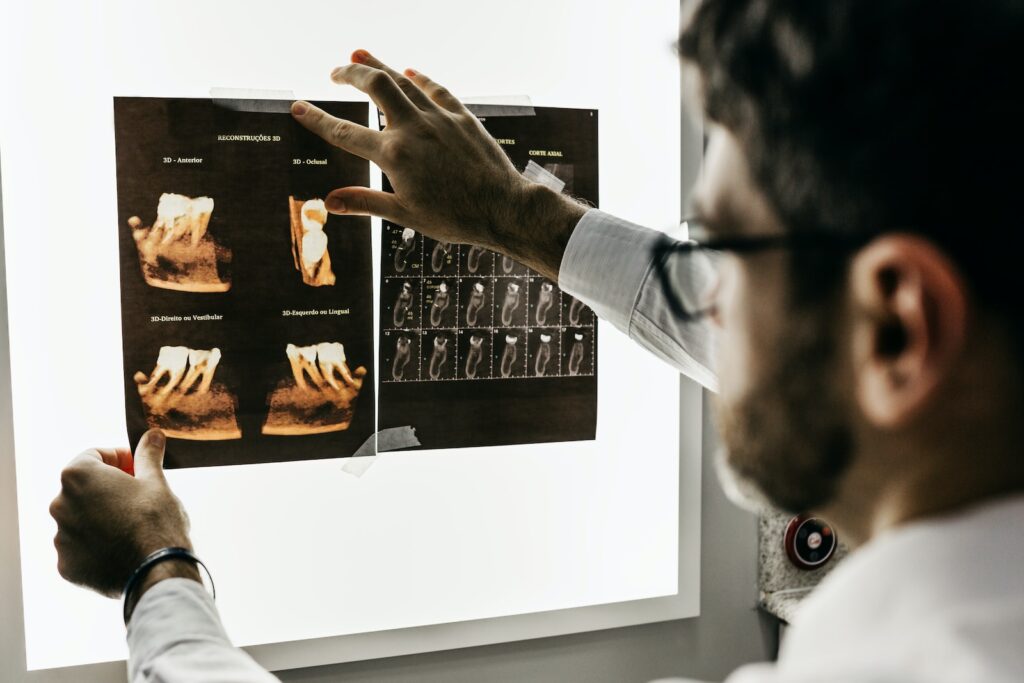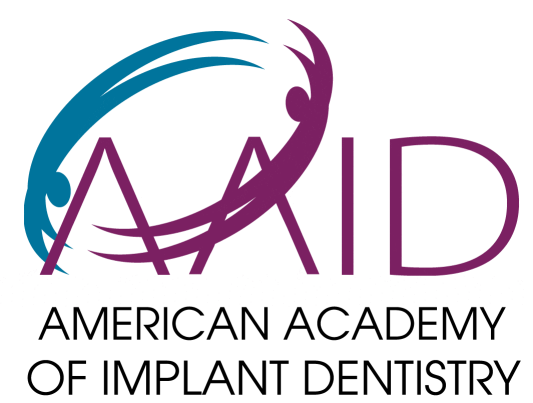Experiencing dental implant complications in Leesburg, Ashburn, Sterling, or Lansdowne? While dental implants greatly improve your smile and quality of life, problems can occasionally arise. Lansdowne Family Dental’s experienced implant specialists help you identify common implant issues early and provide effective solutions. Learn to recognize warning signs of implant failure, infection, or mechanical problems before they become serious. Our comprehensive guide covers the most frequent dental implant complications and how prompt treatment can save your investment and restore your oral health.

What are Dental Implants?
Dental implants are metal posts or frames that are surgically placed into the jawbone beneath your gums. They are used to mount replacement teeth and act as artificial tooth roots. Implants provide a strong, stable foundation for fixed or removable replacement teeth.
There are a few main types of dental implants:
- Endosteal implants – These are the most commonly used implants. They are directly fused to the jawbone through surgery. After the surrounding bone heals, a second surgery is done to connect a post to the implant.
- Subperiosteal implants – These consist of a metal frame placed under the gum during surgery. The frame sits on top of the jawbone but under the gums. They are used when patients have minimal bone height.
- Mini dental implants – As the name implies, these are smaller in diameter than traditional implant posts. They can be used to stabilize dentures or hold a crown in place.
The procedures for getting implants involve multiple steps over several months. Proper placement and care are essential for long-lasting dental implant success.
Common Dental Implant Problems
While dental implants have high success rates, some complications can occur. Here are some of the most common issues to look out for:
Infection
An infection around a dental implant is one of the biggest threats to its longevity. Some signs of infection include:
- Swelling, redness, or tenderness around the implant site
- Pain or discomfort when eating or brushing near the area
- Loosening of the implant
- A bad taste or odor coming from the implant area
Infection usually occurs within the first few weeks after implant placement but can happen years later. Bacteria get trapped under the implant and inflame the surrounding tissue.
If you suspect an implant infection, contact our office right away. You’ll likely need antibiotics to clear the infection before it causes major damage.
Peri-implantitis
Peri-implantitis refers to inflammation of the soft and hard tissues surrounding the implant. It’s caused by plaque and bacteria buildup. Symptoms involve:
- Red, swollen, or bleeding gums around the implant
- Bad breath
- Gum recession around the implant, making it look longer
- Loosening of the implant
This progressive condition can lead to implant failure. Get an exam if you notice any of these signs. Treating peri-implantitis requires debridement and antibiotics.
Loose Implant
Dental implants should feel rock solid once integrated into the bone. If you notice an implant feels wobbly or different from surrounding teeth, it could mean a loose implant.
Some causes for a loose implant include:
- Infection
- Inadequate bone at the implant site
- Excessive biting forces
- Poor positioning of the implant
- Damage to the implant fixture
Don’t ignore a loose implant. It won’t improve on its own. Seek treatment right away to prevent further damage.
Bone Loss
Progressive bone loss around an implant can lead to loosening. It can be caused by:
- Chronic inflammation or infection
- Occlusal stress from teeth grinding
- Lack of initial bone volume or density
- Poor positioning of the implant
Bone loss is diagnosed through x-rays. Stopping inflammation and adjusting biting forces may help. If significant bone loss occurs, the implant may need removal.
Recession
Gum recession around an implant occurs when the margin of the gum tissue pulls back, exposing more of the implant post.
Causes include:
- Poor oral hygiene leads to periodontal disease
- Occlusal forces from grinding or clenching
- Insufficient gum tissue around the implant site
Mild recession may not impact the implant. More severe recession can lead to bone loss or infection. Surgical grafting can treat receding gums.
Implant Fracture
While rare, the implant fixture can crack or fracture inside the bone. This can happen if:
- The implant shaft was too narrow and weak
- Inadequate bone integrated with the implant
- Excessive biting forces were placed on the implant
Broken implants must be surgically removed and replaced with a wider diameter implant.
Failed Osseointegration
Osseointegration refers to the fusing of the implant to the surrounding jawbone. Proper osseointegration is key to the implant’s stability and longevity.
If osseointegration fails to occur, the signs will be noticeable shortly after placement surgery:
- Mobility in the implant post
- Lack of sensation when biting down
- Pain, swelling, or inflammation around the site
- Changes seen in X-ray images
This early failure usually means the implant needs to be removed and bone grafting done before placing another implant attempt.
Dental Implant Solutions
If you notice any symptoms of the above dental implant complications, don’t wait. Call our Lansdowne dental office right away. The sooner we can diagnose and treat the problem, the better chance we have of saving your implant.
We also recommend regular dental checkups every 6 months even if you have no implant issues. Routine exams allow us to check the health of your implants and surrounding bone and tissue.
Proper hygiene and plaque removal around implants are also critical to avoid infection and inflammation. We can ensure you’re cleaning properly around these intricate restorations.
Long-Lasting Implant Success
While dental implant problems can happen, they are still one of the most successful procedures in dentistry when done properly. Following good oral hygiene and seeing us for regular exams gives you the best chance of many years of use from your implants.
If you are considering getting dental implants, choose an experienced implant dentist like Dr. Wael Elosta at Lansdowne Family Dental. With quality materials, modern 3D imaging, and exceptional care, we provide trusted implant placements with very high success rates.
Contact our office today to schedule a consultation. We’ll discuss your options and ensure you get the optimal treatment for missing teeth replacement and a healthy, confident smile.






